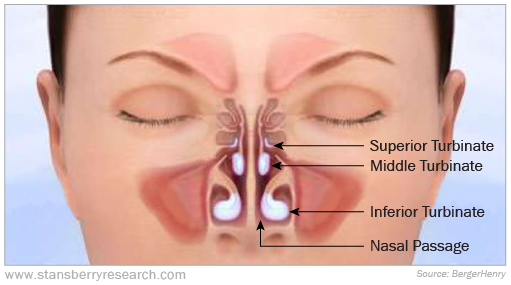Doc's note: Millions of Americans have felt the effects of this year's flu season. Here in our Baltimore office, plenty of folks have spent a week or more sick (and some are stuck with lingering coughs). So today, I want to share my classic and simple advice to help you make it through cold and flu season...
***
Every fall and winter – without fail – the news bombards us with warnings about protecting ourselves from the flu.
Of course, for most folks, getting the flu is no big deal, just an inconvenience for a few days. But for some with underdeveloped or compromised immune systems, the flu can have deadly consequences.
Most years, flu activity peaks between December and February – with February being the most common peak. But sometimes, the flu season can drag into the months of March, April, and even as late as May.
The flu isn't a modern illness...
Humans have been battling the flu for thousands of years...
The first recorded flu wave can be found in the texts of Hippocrates – the ancient Greek known as the father of modern medicine – dating back to around 400 B.C.
In the Hippocratic Corpus, Hippocrates described a flu-like illness called the "fever of Perinthus" that caused folks in the northern port town of Perinthus to experience an upper respiratory tract infection every winter and spring.
And a 15th century epidemic in Italy gave birth to the term "influenza."
So we're no strangers to prepping for the wave of flu that ripples around the globe year after year. Typically folks prepare by taking precautionary measures like:
- Getting a seasonal flu shot
- Staying home when feeling under the weather
- Keeping some distance from other people
- Covering mouth and nose when sneezing
- Washing hands with soap and water
- Avoiding touching eyes, nose, and mouth with germy hands
But according to a recent study, there's one very simple thing you can do to protect yourself from getting the flu and other common cold-weather sicknesses like colds, COVID-19, and respiratory syncytial virus (known as "RSV")...
Researchers from Harvard University Medical School in Boston set out to uncover the biological mechanism of action regarding how folks develop seasonal upper respiratory tract infections.
Using surgically collected tissue samples from the inferior turbinate mucosal walls (pictured below) which line the nasal passages at the tip of the nose, researchers monitored the cellular activity of the nasal tissue while exposing it to cold temperatures.

Turns out, simply breathing cold air damages our nasal tissue and reduces our ability to fight off sickness. The researchers found that a temperature drop of just 9 degrees Fahrenheit was enough to cause nearly half of the immune cells that fight viruses and bacteria at the entry point of the nose to die.
So, how can we better protect ourselves?
It's as easy as keeping our noses warm. Don a scarf or pop on a mask when you go outside in the cold... especially if you're prone to wintertime sickness. I've been telling folks this for years...
I bundle up when going outside in the chilly winter months. Friends and family tease me for my rule about wearing my earmuffs when the temperature is below 50 degrees and a scarf when it's below 40 degrees, but I like to be safe – and stay healthy.
To keep your nose warm, do what I do... Wrap a scarf around your face when you're outside. A balaclava or ski mask is another good way to keep your face warm, especially if you spend large chunks of time in the winter cold. You can find one at sporting-goods stores or retailers like Target for less than $20.
Taking care of your health is crucial this time of year, especially if you're over the age of 65. Your immune system isn't as strong as it used to be. That puts you at higher risk and makes you more vulnerable to complications and even death from the flu. Take the easy steps to prevent yourself from getting sick and stay safe this winter (and the next one too).
Here's to our health, wealth, and a great retirement,
Dr. David Eifrig and the Health & Wealth Bulletin Research Team
December 19, 2023
